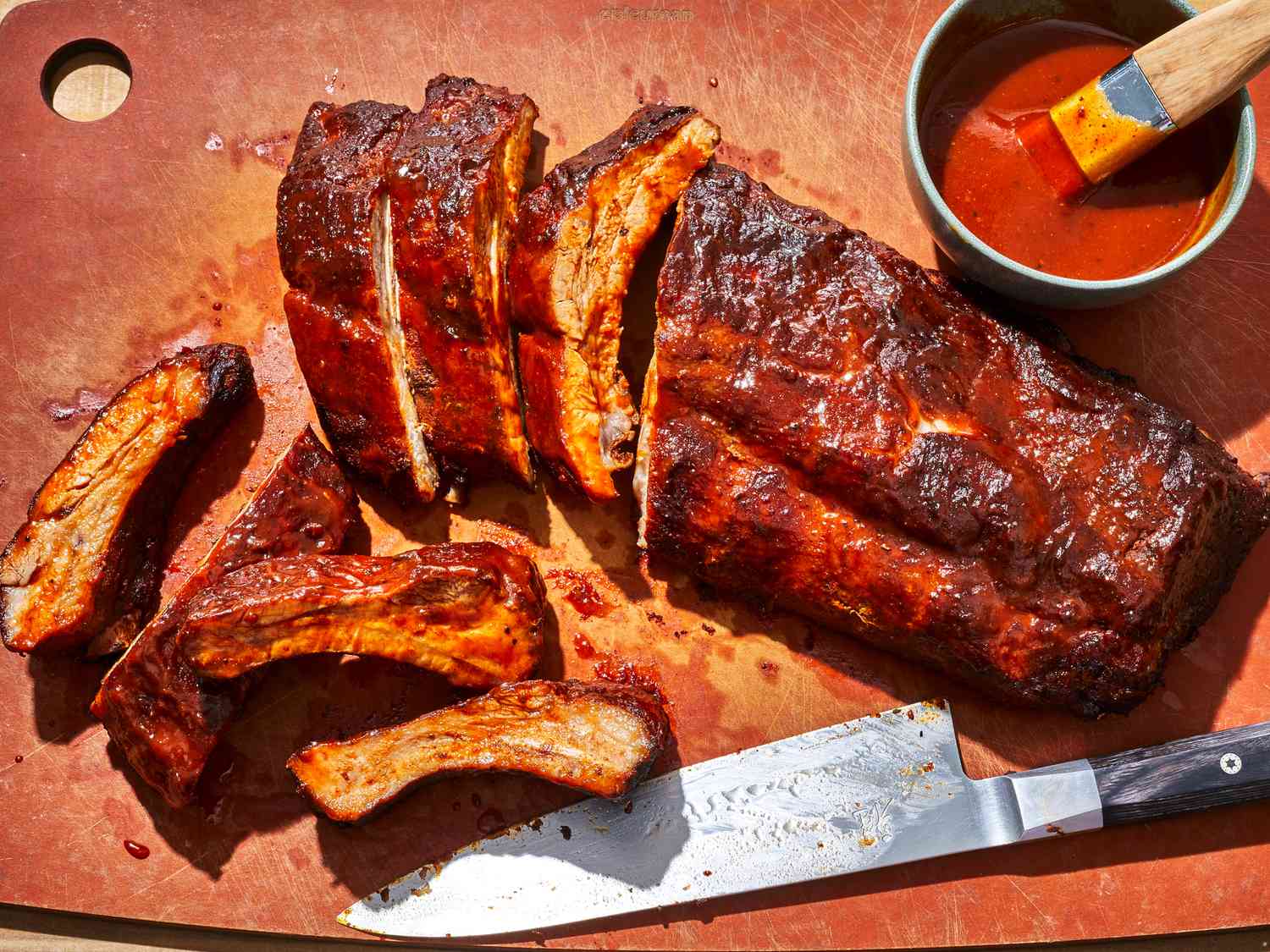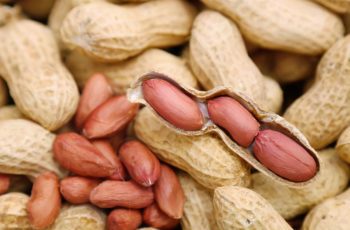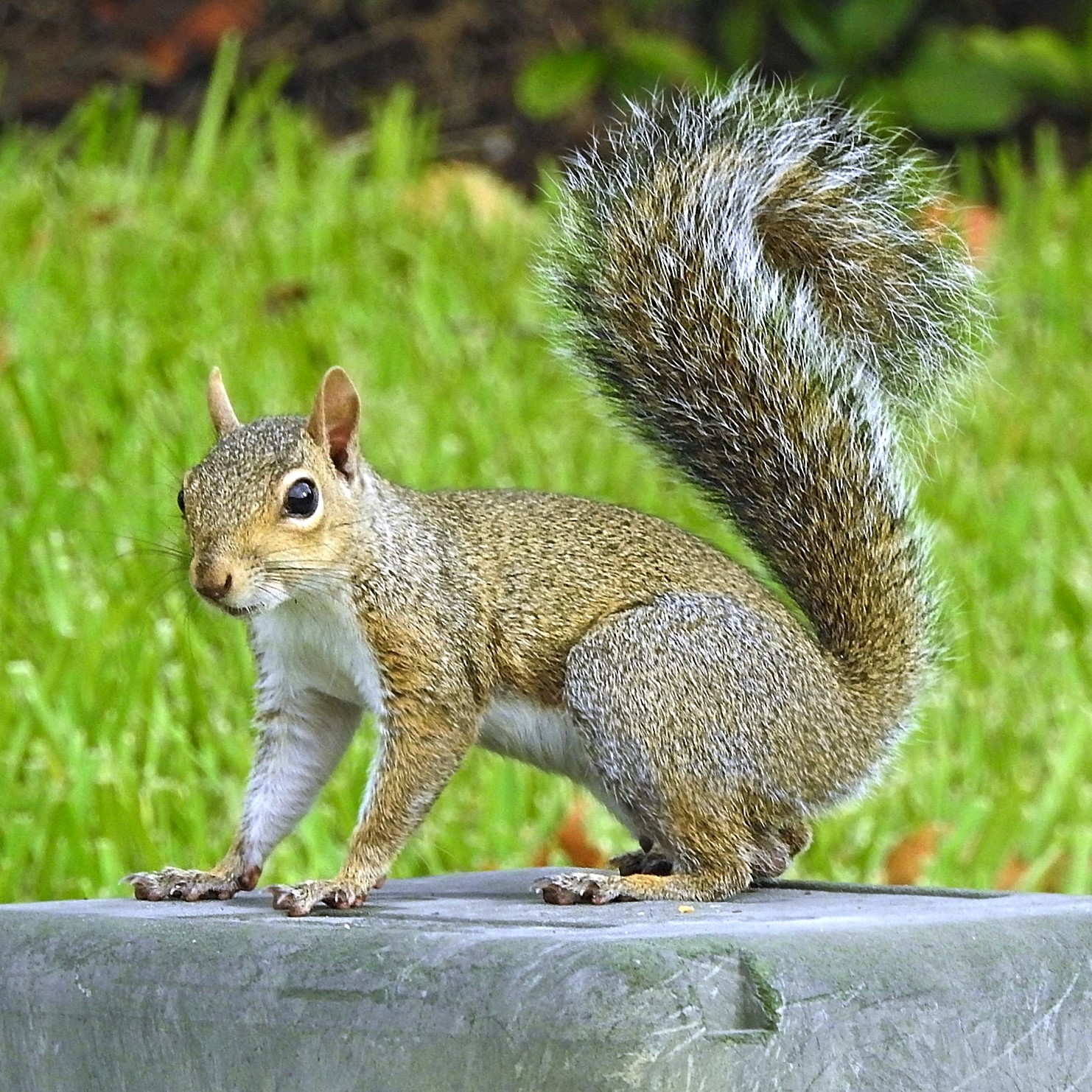
Grey squirrels typically live up to 6 years in the wild. In captivity, they can live up to 20 years.
Grey squirrels are a common sight in many urban and rural areas. Known for their bushy tails and agile movements, these creatures are fascinating to observe. They play a crucial role in their ecosystems by aiding in seed dispersal. Their diet mainly consists of nuts, seeds, and fruits, which they often bury to eat later.
These squirrels are adaptable and can thrive in various environments. Understanding their lifespan and habits helps in appreciating their role in nature. Grey squirrels face threats from predators and habitat loss, but their adaptability ensures their survival in many areas.
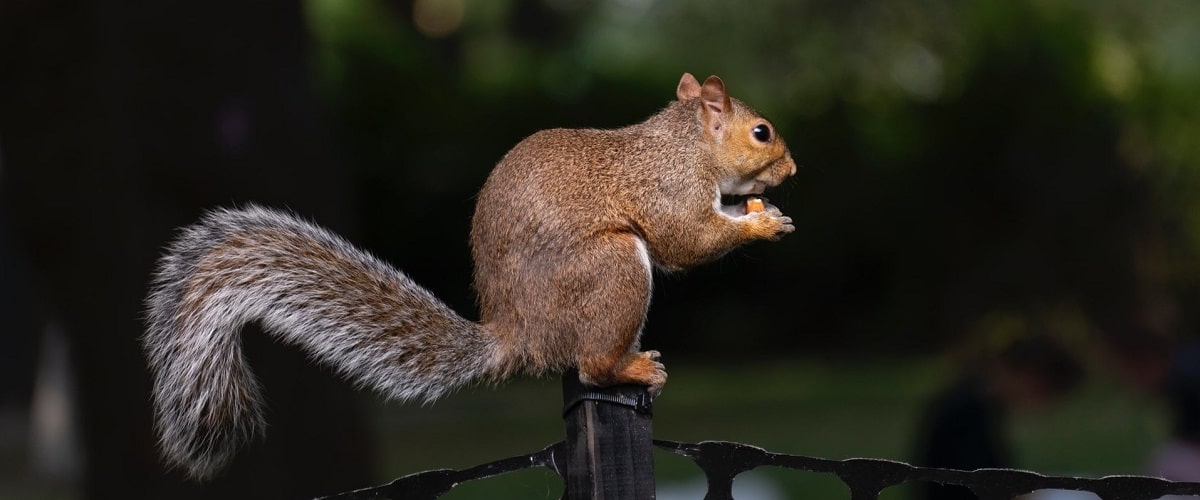
Credit: www.trutechinc.com
Introduction To Grey Squirrels
Grey squirrels are curious and lively creatures. They are often seen in parks and gardens. Their scientific name is Sciurus carolinensis. These small mammals are well-loved for their playful nature.
Brief Overview
Grey squirrels have bushy tails and sharp claws. They use their tails for balance and warmth. Their fur is mostly grey, with a hint of brown. They have large eyes and tiny ears.
These squirrels are active during the day. They are known for their acrobatic skills. Grey squirrels are intelligent and adaptable.
Common Habitats
Grey squirrels live in a variety of places. They thrive in both urban and rural areas. Their main habitats include:
- Forests: They prefer hardwood forests with lots of oak and hickory trees.
- Parks: Urban parks provide food and nesting sites.
- Backyards: They are common in residential gardens with bird feeders.
Grey squirrels build nests, called dreys, in trees. They also use tree cavities for shelter. These habitats provide them with food and safety.
Life Expectancy In The Wild
Grey squirrels are fascinating creatures. They are often seen in parks and forests. Their life expectancy in the wild varies. Understanding their lifespan helps in appreciating these agile animals.
Average Lifespan
The average lifespan of a grey squirrel in the wild is about 6 years. Some may live longer, reaching up to 12 years. But, most do not survive past their first year.
Factors Affecting Lifespan
Several factors influence a grey squirrel’s lifespan in the wild. These include:
- Predators: Owls, hawks, and foxes often hunt squirrels.
- Food Availability: A steady food supply is crucial for survival.
- Weather Conditions: Harsh winters can reduce their numbers.
- Diseases: Squirrels can catch diseases that affect their health.
Let’s take a closer look at how these factors play a role:
| Factor | Impact on Lifespan |
|---|---|
| Predators | High risk, especially for young squirrels |
| Food Availability | Essential for growth and survival |
| Weather Conditions | Cold winters can be fatal |
| Diseases | Can spread quickly and be deadly |
Understanding these factors helps in appreciating the challenges grey squirrels face. Despite these challenges, they continue to thrive in many environments.
Life Expectancy In Captivity
Grey squirrels in captivity often live longer than their wild counterparts. This is because they receive constant care and protection. Let’s explore how their life expectancy changes and the factors influencing it.
Differences From Wild Squirrels
Wild grey squirrels face numerous threats daily. These include predators, diseases, and harsh weather. In contrast, captive squirrels enjoy a safe environment. They have regular access to food and water, reducing the risk of malnutrition.
Captive squirrels also benefit from medical care. This means they receive treatments for injuries and illnesses that wild squirrels might succumb to. Consequently, the life expectancy of a captive grey squirrel can be significantly higher.
Advantages And Challenges
| Advantages | Challenges |
|---|---|
|
|
Captive squirrels enjoy a steady food supply. They do not have to hunt or forage. This ensures they get balanced nutrition regularly. They are also safe from predators, reducing stress and injuries.
On the flip side, captivity brings challenges. Squirrels need space to roam and explore. Limited space can affect their mental health. They also rely entirely on caregivers for their needs, creating a dependency.
Providing stimulation is crucial. Toys, climbing structures, and interaction help keep captive squirrels happy. Caregivers must ensure they have an enriching environment.
Predators And Threats
Grey squirrels face many predators and threats in their natural habitat. These dangers significantly impact their lifespan. Understanding these threats can help us protect these animals better.
Natural Predators
Grey squirrels are prey to various natural predators. These include:
- Hawks
- Owls
- Foxes
- Snakes
Birds of prey such as hawks and owls are a significant threat. These birds have excellent vision and can spot squirrels from high above. Foxes, on the other hand, hunt grey squirrels on the ground. They use their keen sense of smell to track them. Snakes, especially tree-dwelling ones, pose a danger to young squirrels in nests.
Human Impact
Humans also pose significant threats to grey squirrels. These impacts include:
- Habitat destruction
- Road traffic
- Pesticides
- Trapping
Habitat destruction is a major threat. Cutting down trees for development removes their homes. Road traffic is another danger. Many squirrels die trying to cross roads. Pesticides used in gardens can poison them. Trapping is also a concern as people try to control their population.
Diet And Nutrition
The diet and nutrition of a grey squirrel play a crucial role in their lifespan. Understanding what they eat and how nutrition impacts their longevity can give insights into their life expectancy.
Typical Diet
Grey squirrels have a varied diet. They primarily eat:
- Nuts: Acorns, walnuts, and hazelnuts are favorites.
- Seeds: They consume seeds from various plants.
- Fruits: Apples, berries, and other fruits.
- Vegetables: Corn and other garden vegetables.
- Bark: They gnaw on tree bark.
- Insects: Occasionally, they eat insects for protein.
They also store food for winter. This helps them survive when food is scarce.
Role Of Nutrition In Lifespan
Good nutrition directly affects a grey squirrel’s lifespan. Squirrels with a balanced diet live longer.
| Food Type | Nutritional Benefit |
|---|---|
| Nuts | Rich in fats and proteins |
| Seeds | High in essential nutrients |
| Fruits | Provide vitamins and antioxidants |
| Vegetables | Source of fiber and minerals |
| Bark | Helps in teeth maintenance |
| Insects | Additional protein source |
A diet lacking in essential nutrients can shorten their lifespan. A well-fed squirrel is more active and healthier.
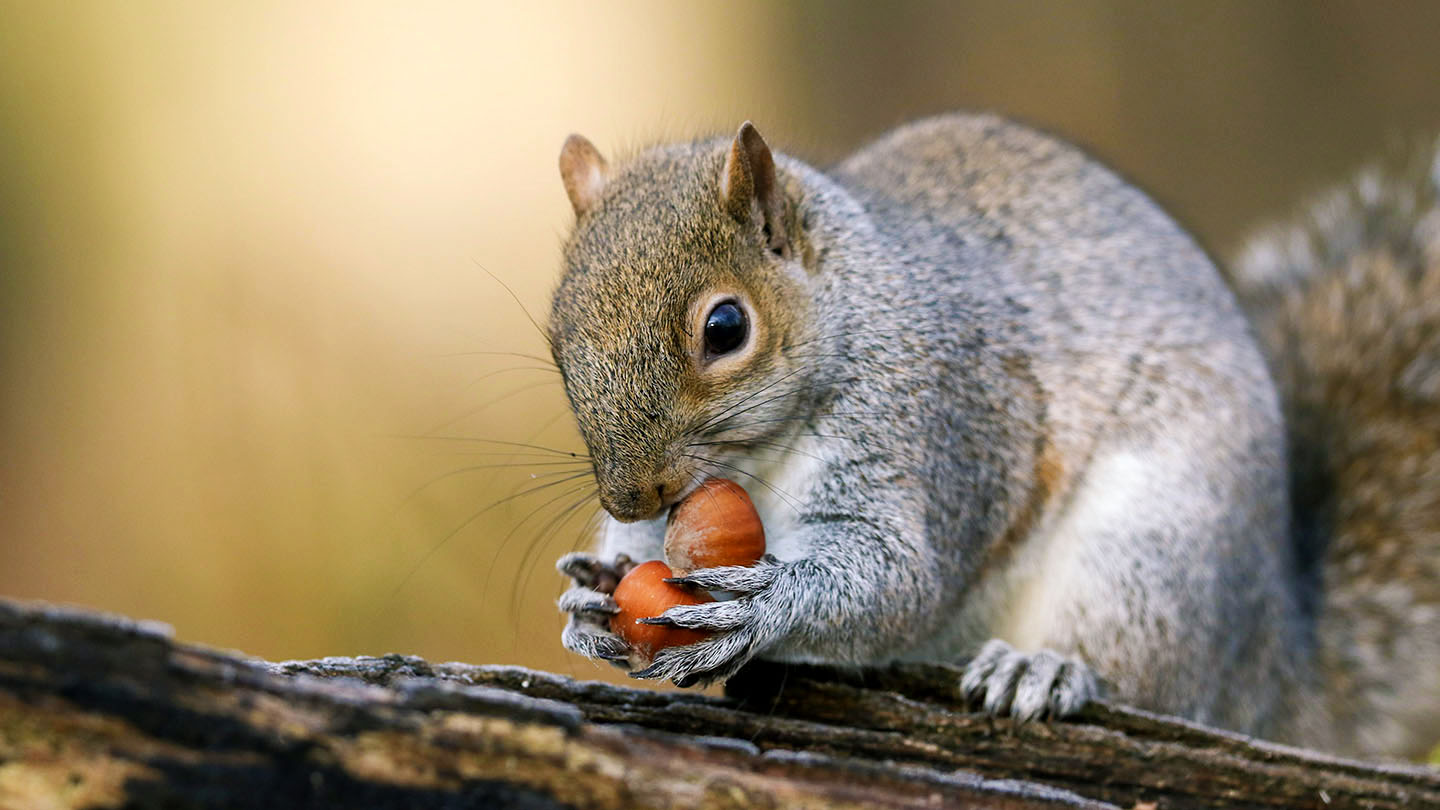
Credit: www.woodlandtrust.org.uk
Reproduction And Lifespan
Grey squirrels are fascinating creatures. Their reproduction and lifespan offer insights into their survival. Understanding their breeding patterns and the impact on their longevity helps us appreciate these agile animals.
Breeding Patterns
Grey squirrels have distinct breeding seasons. They usually breed twice a year. The first breeding season occurs between January and February. The second season happens between June and July.
During these periods, females become receptive to males. A female may mate with multiple males. After mating, the female builds a nest called a drey. She gives birth to a litter of 2-8 young squirrels.
These young squirrels are born blind and hairless. They stay in the nest for about 10 weeks. The mother nurses them until they can fend for themselves.
Impact On Longevity
Several factors impact a grey squirrel’s lifespan. Predation is a major threat. Birds of prey, foxes, and domestic cats hunt them. Urban areas pose risks like traffic and pollution.
Nutrition also affects their longevity. Squirrels with access to abundant food live longer. They store food for winter, ensuring they survive harsh conditions.
Natural lifespan for grey squirrels is about 6 years. In captivity, they can live up to 20 years. This significant difference highlights the impact of environmental factors.
| Factor | Impact on Lifespan |
|---|---|
| Predation | Decreases lifespan |
| Urban Risks | Decreases lifespan |
| Nutrition | Increases lifespan |
| Captivity | Increases lifespan |
Grey squirrels are resilient animals. Understanding their reproduction and lifespan helps us protect their populations.
Health Issues
Grey squirrels are lively creatures, but they face many health issues. Understanding these health problems helps explain their lifespan.
Common Diseases
Grey squirrels are prone to several diseases. Here are some common ones:
- Squirrel Pox: This viral infection causes severe skin sores.
- Parasites: Fleas, ticks, and mites often infest squirrels.
- Respiratory Infections: These can lead to breathing problems.
- Dental Issues: Overgrown teeth can make eating difficult.
Preventive Measures
Preventive measures can help grey squirrels live longer. Here are some tips:
- Proper Nutrition: A balanced diet keeps squirrels healthy.
- Clean Environment: A clean habitat reduces disease risks.
- Regular Check-ups: Health check-ups can catch issues early.
- Safe Habitat: Protect them from predators and hazards.
By understanding these health issues and taking preventive steps, we can help grey squirrels live healthier lives.
Conservation Efforts
Conservation efforts play a crucial role in maintaining grey squirrel populations. These efforts ensure their survival and well-being in the wild. Understanding current initiatives and the importance of conservation can help protect these creatures.
Current Initiatives
Several organizations focus on grey squirrel conservation. These initiatives aim to create safer habitats and ensure their long-term survival. Here are some key efforts:
- Habitat Restoration: Projects to restore and expand squirrel habitats.
- Research Programs: Studies on grey squirrel behavior and health.
- Public Awareness: Campaigns to educate people about grey squirrel conservation.
Many volunteers participate in these programs. Their efforts help monitor squirrel populations and maintain their habitats.
Importance Of Conservation
Conserving grey squirrels is essential for several reasons:
- Ecological Balance: Grey squirrels play a significant role in forest ecosystems.
- Biodiversity: Protecting them helps maintain species diversity.
- Scientific Research: Grey squirrels are important for scientific studies.
Conservation ensures these animals thrive and contribute to their ecosystems. Protecting grey squirrels also helps other species in the same habitats.
Interesting Facts
Grey squirrels are fascinating creatures. They exhibit unique behaviors and have varying lifespans. Learn more about these intriguing animals below.
Unique Behaviors
Grey squirrels display several unique behaviors. They are known for their agility and cleverness.
- They can leap up to 10 feet between trees.
- They create multiple nests called dreys.
- They use their tails for balance and communication.
Grey squirrels also bury nuts for winter. They have an excellent memory to find them later.
Interestingly, they use a zigzag pattern to escape predators. This makes it harder for predators to catch them.
Record Lifespans
The lifespan of a grey squirrel varies. In the wild, they live shorter lives.
On average, a grey squirrel lives about 6 years in the wild. Their lifespan can extend to 12 years in captivity.
Below is a table showing the lifespan differences:
| Environment | Average Lifespan |
|---|---|
| Wild | 6 years |
| Captivity | 12 years |
Some grey squirrels have even lived up to 20 years in captivity. These are exceptional cases.
Factors like predators, food availability, and diseases affect their lifespan in the wild.

Credit: animals.howstuffworks.com
Frequently Asked Questions
How Long Do Grey Squirrels Live In The Wild?
Grey squirrels typically live 6 years in the wild. Predators and environmental factors often reduce their lifespan.
What Affects Grey Squirrel Lifespan?
Grey squirrel lifespan is influenced by predators, food availability, and habitat quality. Harsh weather can also impact their longevity.
Do Grey Squirrels Live Longer In Captivity?
Yes, grey squirrels can live up to 20 years in captivity. They benefit from consistent food supply and lack of predators.
What Is The Average Lifespan Of A Grey Squirrel?
The average lifespan of a grey squirrel is around 6 years. Some may live up to 12 years in optimal conditions.
Conclusion
Grey squirrels typically live up to 6 years in the wild. Proper habitat and diet can extend their lifespan. Understanding their life cycle helps in conservation efforts. Keep your surroundings squirrel-friendly to support their well-being. Observing these lively creatures can be a rewarding experience for nature enthusiasts.
Learn More About Grilling
If you want to learn more about grilling, check out these other helpful resources!


